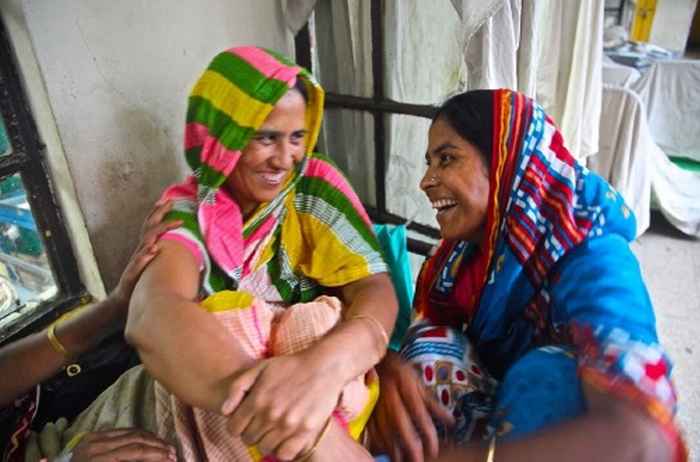Researcher Stije Leopold: ‘Thanks to the fund, we can investigate how to better support caregivers.’
Professor Faber Fund enables research on family participation in healthcare
22 February 2024

He received a €20,000 grant from the Professor Faber Fund for Research on Tropical Diseases from the Amsterdam University Fund to investigate this.
Staff shortages in healthcare
The idea for his research arose during his time in Bangladesh, Leopold explains. ‘In hospitals there, a family member is almost always present with a patient. These family members also fulfil various roles in caregiving.’ This observation sparked the idea for this research project, examining whether family members can assist in caring for their loved ones. ‘The underlying problem,’ Leopold states, ‘is the global shortage of healthcare personnel, which poses a real danger to the quality of care.’
The value of caregivers
Involving family members in caregiving could be a solution. ‘In Bangladesh, I saw that these family members perform basic caregiving tasks such as bathing, dressing, feeding, and communicating with medical staff.’ Family members are not only almost always present but are also intrinsically motivated to help the patient. ‘This creates a unique working relationship,’ Leopold says. ‘Caregivers are often not seen as part of a healthcare team. However, if there are only four nurses for a hundred patients, then the informal role of caregivers quickly becomes contributing to simple caregiving tasks. Our question is: how can we further support this?’ In his research, Leopold examines how family members can safely participate and tests interventions aimed at caregivers.
‘We also face staff shortages in healthcare in the Netherlands, and this will only be increasing in the coming years. So we can learn a lot from how other countries are tackling this.’Stije Leopold
Adapting to local context
What's crucial, he explains, is to consider local healthcare experiences. "Which interventions work well depends entirely on the environment. Because caregiving roles and tasks are culturally dependent and must therefore also fit within the context.’ To investigate this thoroughly, Leopold employs mixed methods for data collection, including interviews with patients, doctors, and nurses. And staffing issues in healthcare aren't limited to low-income countries, he says. ‘We also face staff shortages in healthcare in the Netherlands, and this is only increasing in the coming years. So, we can learn a lot from how they tackle this there.’
Gaining new knowledge thanks to the fund
To conduct this innovative research, Leopold applied for a grant from the Amsterdam University Fund. 'This is a new field of research with little research conducted,’ he says. ‘That's why it's also less easy to find funding for it. Thanks to the grant from the Professor Faber Fund, it's possible to gain new knowledge about family participation, which we can then apply elsewhere.’